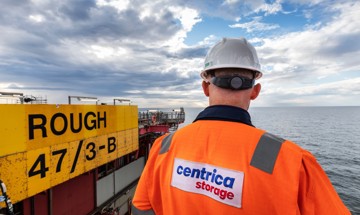The UK stands on the cusp of a net zero opportunity that could transform our economy and the lives of people across our country. In the coming years we need to deliver an energy system that is affordable, sustainable and secure. These imperatives will drive a vast wave of investment as we embark on the transition to a low carbon future.
If we get this right, the rewards could be huge. Experts estimate the UK’s net zero economy could be worth £1 trillion by 2030. It could also create tens of thousands of new, well paid, skilled jobs right across the UK.
But to seize this unprecedented opportunity, we need a clear plan of action – and we must be bold and ambitious. Crucially, we need a 10-year skills revolution to make sure the UK has workers who are properly trained and ready to deliver the net zero transition.
This will be a massive national challenge at a time when we have an aging workforce, a lack of apprentices and inadequate vocational training. We need to think creatively to solve this issue. That is why a coalition of businesses, trade unions and academics have today published a report setting out a net zero roadmap for the UK with two key strands.
First, the Future Energy Skills Programme – co-led by Centrica and the GMB union – makes clear that the UK must step up and match the level of commitment the US and EU have already pledged to fund the green transition. If we don’t, we will be left languishing in the slow lane. The Government also needs a clear strategy to push forward with renewable energy, hydrogen, small nuclear and carbon capture and storage.
Achieving net zero requires a mix of technologies – for example, too many people are falling into the trap of thinking heat pumps are the only solution to decarbonise heat in homes. They are a big part of the solution, as is accelerating hydrogen into our world leading gas network. Suggestions that hydrogen is unlikely to be part of the solution for home heating before the results of extensive tests are known risks undermining the energy transition and increasing the costs for everyone. As the UK’s largest installer of both boilers and heat pumps, we have expertise here.
If we make the most of our first-mover advantage, we can deliver a huge boost to growth and prosperity. But if we stand back and are left behind in the global energy transition, we risk paying a very heavy economic price. Being proactive will make the energy transition affordable – dragging our heels means it will be a huge burden.
Second, we can only succeed in the drive towards net zero if we have workers with the right skills to ensure the UK can deliver a more sustainable future. That is why today’s report is calling for a 10-year plan to ensure the UK’s technical and vocational training system is match-fit and ready to produce a workforce that can deliver net zero. We need a far-reaching overhaul so we can start identifying the gaps in our skills system now – and make sure we tackle them.
Today’s report sets out the vast range of different roles we will need to fill, from the thousands of workers who will make our homes and workplaces more energy efficient, to those in low carbon energy generation, storage, transmission and distribution. We will need many more skilled workers across a wide array of sectors, including hydrogen, nuclear and tidal.
We also want the move towards a low carbon economy to be a fair and just transition – a step forward that creates job opportunities for thousands of people in every part of the UK and leaves no worker or community behind. And it must be a transition that sees us using the expertise and experience of workers in our existing oil and gas industries and retrains them for the new, green energy sources of the future.
In order to deliver, the Government must take decisive policy decisions. Working with business, unions and academics, ministers must construct a clear strategy on how we deliver a secure, resilient, net zero energy system. And we must also ensure we create a well-funded, flexible skills system that will produce the workers the UK needs to build our low carbon future.
We hope today’s report – which sets out 50 practical recommendations – will play a key role in in this era-defining journey and will help ensure that the UK emerges as a world leader in this vital mission. We have a once in a lifetime opportunity before us – and we must seize it.
You can read the full report here

Case Study
The Demand for Energy Flexibility
Sustainability
Powering up the hydrogen revolution
Sustainability

Blog
Let’s grasp the opportunity a secure, Net Zero energy future affords
Sustainability

Blog
"It’s our role to take everyone on the journey towards Net Zero living"
Sustainability
Progressing our People and Planet Plan
Sustainability

Case Study
Centrica's Climate Transition Plan
Sustainability


